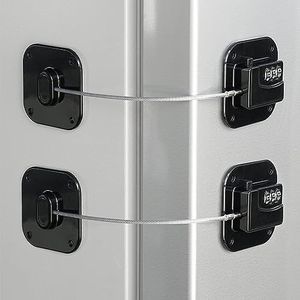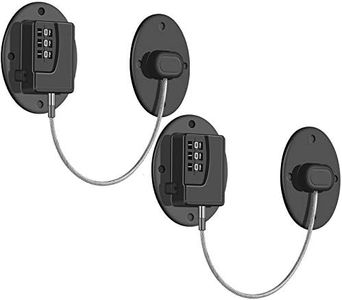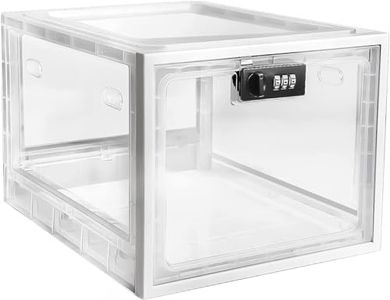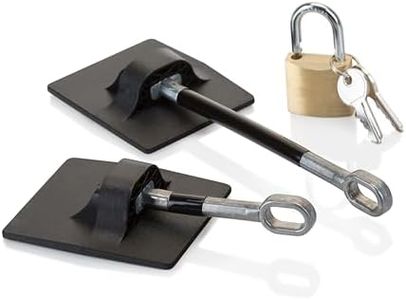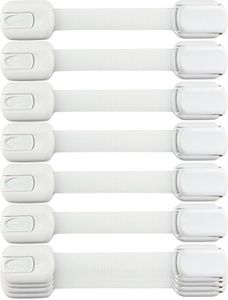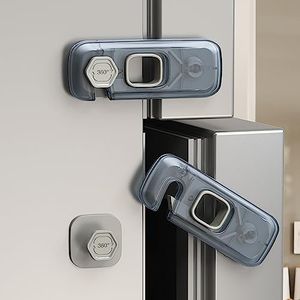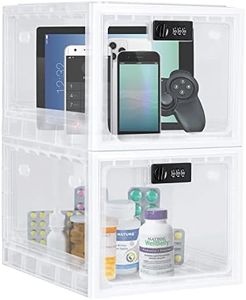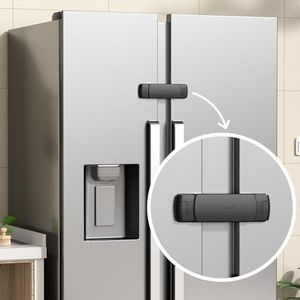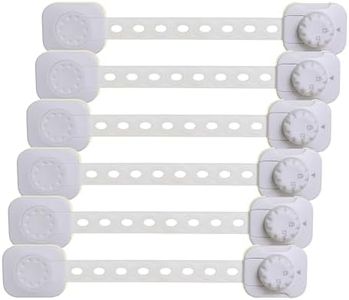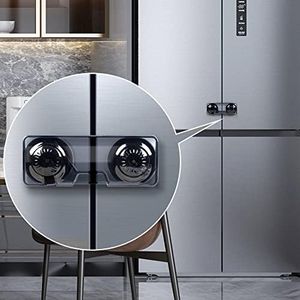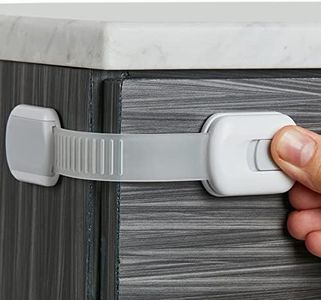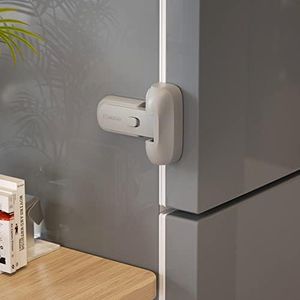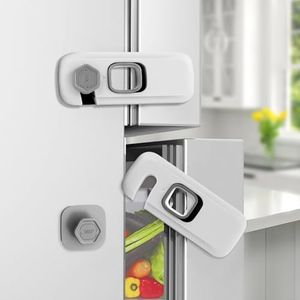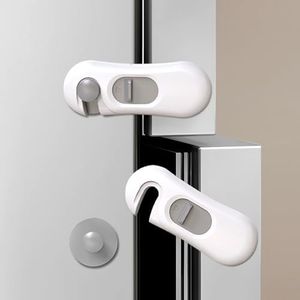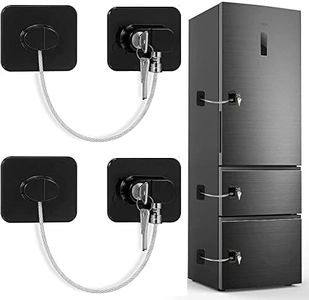We Use CookiesWe use cookies to enhance the security, performance,
functionality and for analytical and promotional activities. By continuing to browse this site you
are agreeing to our privacy policy
10 Best Refrigerator Lock
From leading brands and best sellers available on the web.Buying Guide for the Best Refrigerator Lock
Choosing the right refrigerator lock can make a big difference in home safety, organization, and potentially even food preservation. When picking a refrigerator lock, it's important to consider who needs access, the level of security you require, and how easy you want installation to be. Think about your specific use case—whether you're keeping kids out, securing medication or beverages, or sharing a fridge with roommates. The best lock is one that balances ease of use, effectiveness, and doesn't damage your appliance.Locking MechanismThe locking mechanism refers to how the lock actually secures the refrigerator and how it opens. Common types include combination locks, key locks, and adhesive straps with closure clips. This is important because it affects how secure the lock is and how convenient it is to use. Combination and key locks offer stronger security if you're keeping out adults or teens, while simple strap locks may suffice for keeping young children away. Choose a combination or key lock if you need strong security, and a strap or clip if you're seeking a basic solution for curious toddlers or light restriction.
Installation MethodInstallation method is how the lock attaches to your refrigerator. Some locks use adhesive pads, while others require drilling or use of screws. Adhesive locks are popular because they’re easy to install and remove with minimal damage, making them suitable for renters or temporary needs. Screw-in locks offer more permanence and strength, which can be better for long-term security but may require tools and can leave marks. Pick adhesive if you want zero or minimal marks and easy removal; choose screw-in for high security or if you don’t mind making modifications to the appliance.
Build MaterialBuild material refers to what the lock is made of, such as plastic, metal, or a combination. This is important as it impacts the durability and strength of the lock. Metal locks are generally sturdier and more tamper-resistant, making them ideal for situations requiring real security. Plastic locks may be enough if you’re only deterring young children. Evaluate how much force might be used against the lock in your household and choose heavier-duty materials for more determined intruders.
Size and CompatibilitySize and compatibility are about the lock fitting your specific refrigerator. Not all locks fit every fridge design; some are made for standard doors, while others work for French doors or side-by-side models. It’s important because an ill-fitting lock won’t secure the appliance properly. Check the dimensions of both your fridge and the lock, and look for adjustable or universally designed locks if your fridge has unusual handles or a unique configuration. Choose a lock that’s compatible with your model to ensure proper function and ease of use.
Ease of UseEase of use means how simple it is to operate the lock daily—for both locking and unlocking. This is crucial as a lock that’s too complicated or fiddly may be frustrating or ignored. Simple locks are better for frequent access, while more complex ones might be necessary for strict security needs. Think about who has to open the fridge—if it’s used by kids or elderly people, opt for a lock that’s easy to manage without much force or finger skills.
